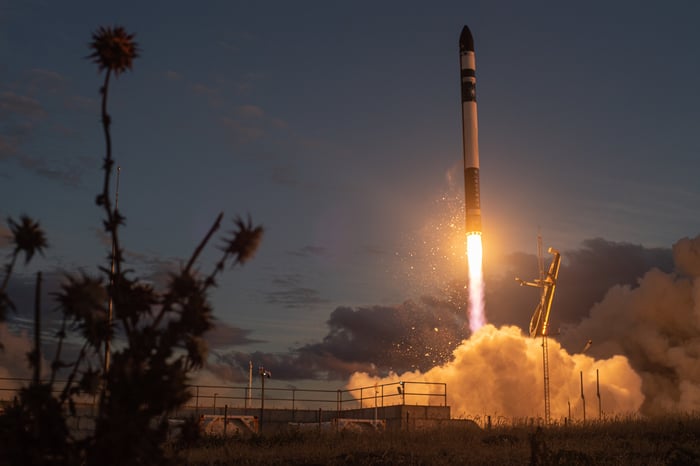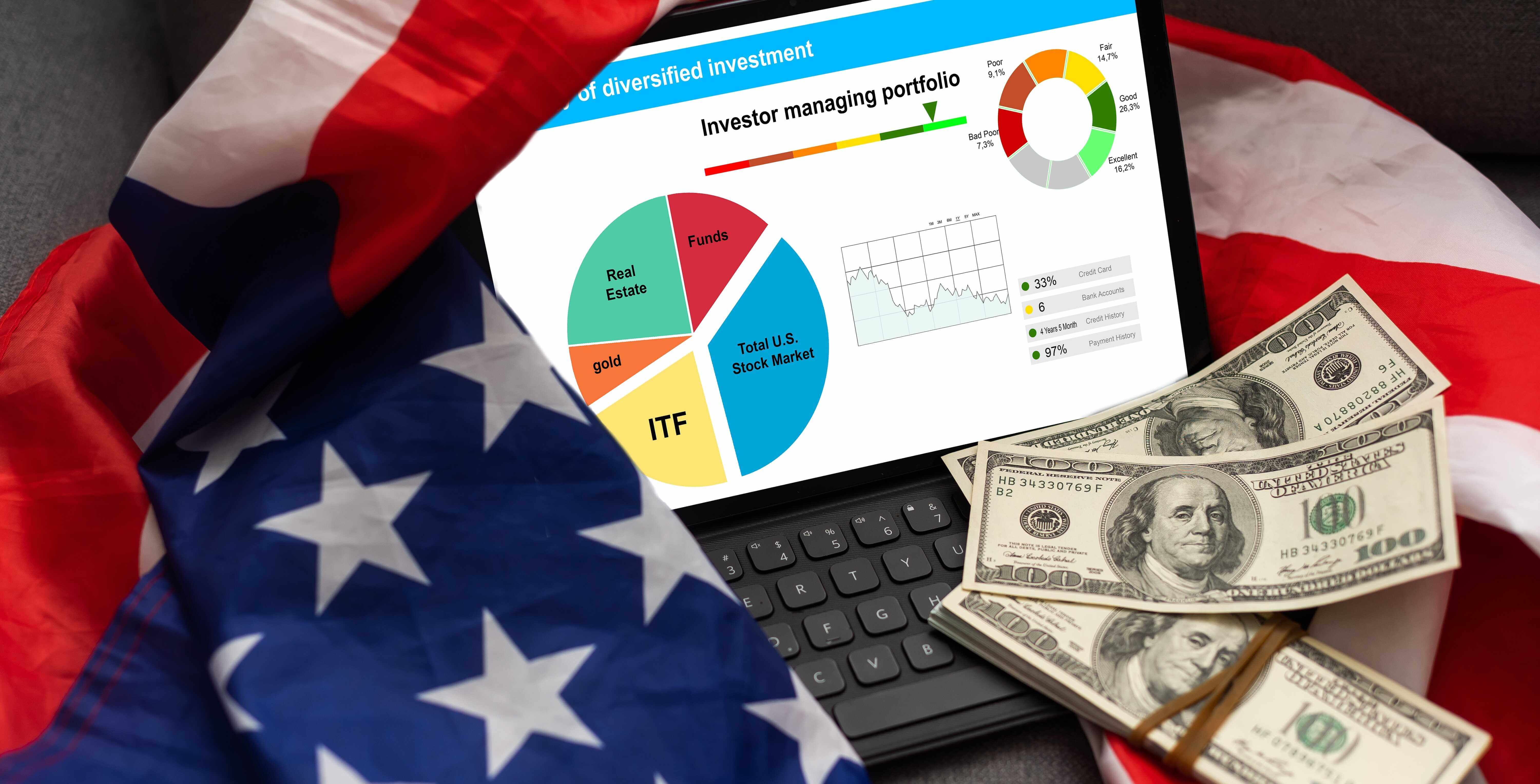Rocket Lab Is Growing Faster Than Spacex. Here's Why.

SpaceX wrapped up 2024 with a record 138 rocket launches, including test flights of its Starship mega-rocket. Although SpaceX lost its second stage this time, in the company's first test flight of 2025, Starship's Super Heavy booster successfully launched and then returned for a chopsticks "landing" at SpaceX's Mechazilla launch-and-landing tower.
In 2024, SpaceX launched as many rockets as the entire rest of the world did, combined, and it grew its launch rate by an impressive 41%. But do you know which rocket stock grew its launch cadence even faster?
Where to invest $1,000 right now? Our analyst team just revealed what they believe are the 10 best stocks to buy right now. See the 10 stocks »
Rocket Lab (NASDAQ: RKLB). The future looks bright for the upstart company. Here's why.
Rocket Lab's Sweet 16
In 2023, Rocket Lab launched 10 times, but in 2024 the New Zealand-U.S. rocket company turned that dial to 16, making for some really easy math: Rocket Lab grew its launch cadence 60%, and thus exceeded SpaceX's 41% growth.
Admittedly, this is just one way of looking at the picture. SpaceX still launched 122 more rockets than Rocket Lab did. And SpaceX grew its rocket launches by 40, versus Rocket Lab's cadence growing only by six. From this perspective, No. 2 American rocket launcher Rocket Lab still has a long way to go to catch up to No. 1 SpaceX.
A more interesting question, though, is how Rocket Lab manages to "beat" SpaceX in any way at all?
Image source: NASA.
Big rockets can't compete with SpaceX
At advertised prices, SpaceX's workhorse Falcon 9 rocket looks very tough to beat. SpaceX reportedly charges just under $70 million for rockets that can carry 22 tons of payload to Low Earth Orbit.
Among other launchers of big, "heavy lift" rockets, the Boeing-Lockheed Martin joint venture ULA charges $110 million for the base version of its Vulcan Centaur rocket carrying 10.8 tons. (That's 50% more money for 50% less capability). Over in Europe, Airbus subsidiary Arianespace charges $77 million to launch a payload of about 10 tons. Its Ariane 62 rocket costs 10% more than Falcon 9, but delivers 50% less than Falcon 9.
Simply put, it's impossible for any other heavy-launch rocket to compete with SpaceX's Falcon 9 on price, payload, or price-per-kilogram of payload. But what about small rockets?

Image source: Rocket Lab.
Rockets come in all sizes
The situation looks different as you scale down. With a proven maximum payload of 320 kg and a launch price that's averaging about $8.4 million currently, Rocket Lab has a rocket that might be able to compete with SpaceX in certain situations.
Granted, Rocket Lab's Electron rocket doesn't have nearly the capability of SpaceX's Falcon 9 (or of ULA's Vulcan, or of Arianespace's Ariane 6, either) to launch heavy payloads. And Rocket Lab has to charge more than $26,000 per kilogram of cargo it launches to Low Earth Orbit, versus SpaceX charging just $4,000 per kilogram on a fully loaded Falcon 9.
But here's the thing: Often when SpaceX launches a Falcon 9, the rocket is mostly empty, utilizing just a fraction of its rated payload, despite charging a full-freight price of $70 million.
In a report last week, Payload Research noted that on "dedicated customer missions," which is to say when not launching its own Starlink satellites, SpaceX Falcon 9 launches carry less than 3.4 tons of payload, on average. But if SpaceX is still charging $70 million per launch for these missions, that means it's charging nearly $21,000 per kilogram for most of its commercial missions.
That's not a whole lot cheaper than Rocket Lab's $26,000 per kilogram cost to launch smaller payloads. Especially when you consider that, as Payload points out, Rocket Lab customers "are willing to pay a premium to secure their dedicated vehicle and tailored service," launching when they want and getting their satellites sent to exactly where they want in orbit.
When deciding whether to launch a small satellite on an Electron, or share space on a Falcon 9 with someone else's payload, Rocket Lab's rocket may -- in certain situations -- actually be able to compete on price with SpaceX.

Image source: Rocket Lab.
Rocket Lab gets better, and bigger
And Rocket Lab's advantages in this area may be growing. Recall that later this year, the company will introduce its new medium-lift Neutron rocket into service. Payload notes that Neutron is expected to cost $50 million to $55 million, so cheaper than SpaceX's Falcon 9 at $70 million.
Granted, Neutron isn't as big as Falcon 9. It can only carry a payload of 13 tons. Still, for a $50 million price tag, that works out to only about $4,000 a kilogram -- the exact same price that SpaceX charges. What's more, if most SpaceX payloads mass less than four tons, and Rocket Lab ends up using Neutron to launch similar cargos, it presents customers with a stark choice: Pay $70 million to launch four tons on SpaceX's heavy lift rocket, or pay only $50 million to launch the same four tons on Rocket Lab's medium lift rocket.
This should be an easy choice for many customers to make, and I suspect their decision is going to make a lot of Rocket Lab investors very happy.
Don’t miss this second chance at a potentially lucrative opportunity
Ever feel like you missed the boat in buying the most successful stocks? Then you’ll want to hear this.
On rare occasions, our expert team of analysts issues a “Double Down” stock recommendation for companies that they think are about to pop. If you’re worried you’ve already missed your chance to invest, now is the best time to buy before it’s too late. And the numbers speak for themselves:
- Nvidia: if you invested $1,000 when we doubled down in 2009, you’d have $357,084!*
- Apple: if you invested $1,000 when we doubled down in 2008, you’d have $43,554!*
- Netflix: if you invested $1,000 when we doubled down in 2004, you’d have $462,766!*
Right now, we’re issuing “Double Down” alerts for three incredible companies, and there may not be another chance like this anytime soon.
*Stock Advisor returns as of January 13, 2025
Rich Smith has positions in Rocket Lab USA. The Motley Fool recommends Lockheed Martin and Rocket Lab USA. The Motley Fool has a disclosure policy.


